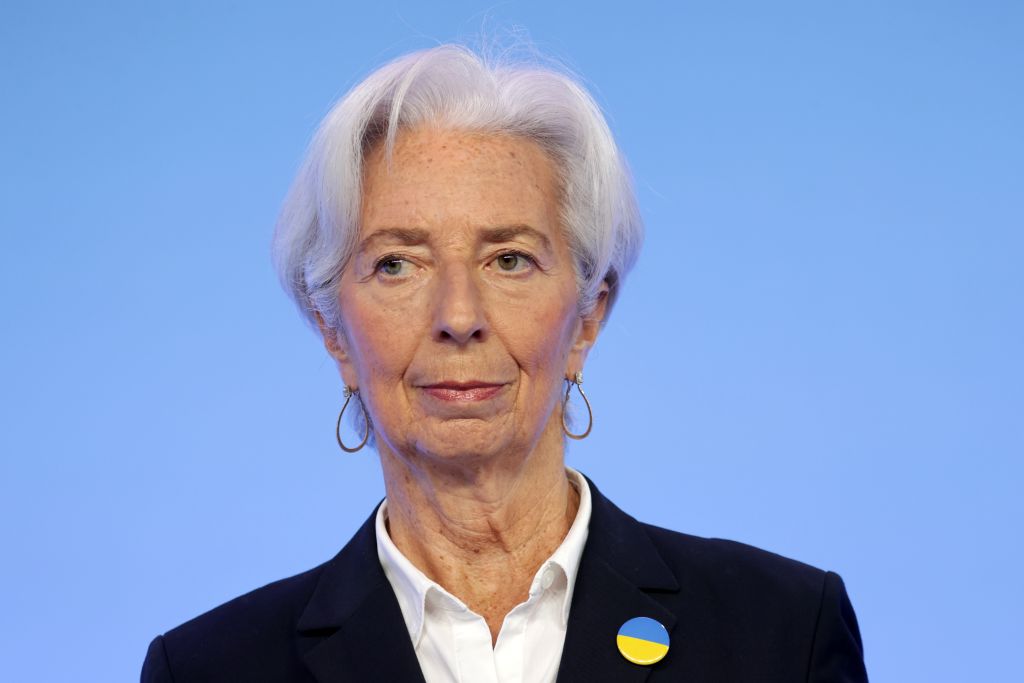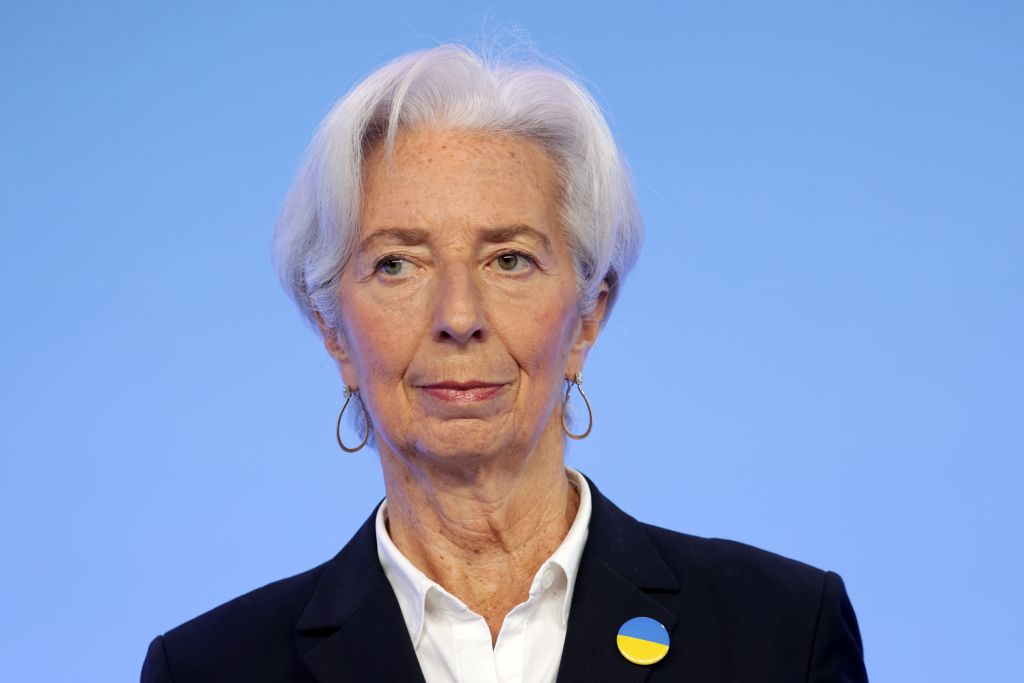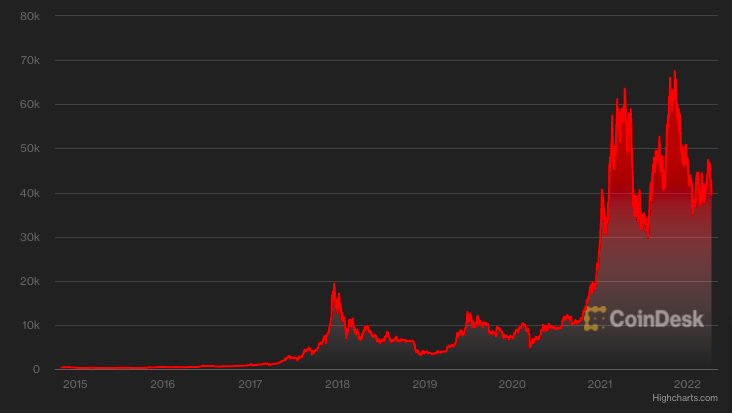
Christine Lagarde, president of the European Central Bank (ECB), during a news conference in Frankfurt, Germany, on Thursday, March 10, 2022. The European Central Bank unexpectedly accelerated its wind-down of monetary stimulus, signaling its more concerned about record inflation than weaker economic growth as Russias invasion of Ukraine threatens to propel prices even higher. Photographer: Alex Kraus/Bloomberg via Getty Images
The European Union (E.U.) has banned the provision of high-value cryptocurrency services to Russia as part of the latest sanctions salvo in response to the invasion of Ukraine.
The move prohibits deposits to crypto wallets—including using popular cryptocurrencies bitcoin, ethereum, BNB, XRP, cardano, solana and luna—and follows a warning from European Central Bank president Christine Lagarde that cryptocurrencies pose a “threat” to the bloc’s efforts to sanction Russia.
The price of bitcoin, ethereum, BNB, XRP, cardano, solana, luna and other cryptocurrencies has soared over the last 18 months, making them increasingly attractive for illicit use even though they remain highly volatile.

The E.U. will put “a prohibition on providing high-value crypto-asset services to Russia,” the European Commission announced, adding, “this will contribute to closing potential loopholes.”
The package is the fifth round of sanctions imposed on the country, which includes action against banks, currencies and trusts, and will “further contribute to ramping up economic pressure on the Kremlin and cripple its ability to finance its invasion of Ukraine.”
In March, European Central Bank (ECB) president Christine Lagarde warned bitcoin and other cryptocurrencies were being used to evade sanctions, calling bitcoin and crypto exchanges offering services to those hit by sanctions “accomplices” in trying to evade them. The world’s biggest crypto exchanges, such as Coinbase and Binance, have been quick to fall into line with sanctions.
Europe and the U.S. have led an effort to impose crippling economic sanctions on Russian state companies and banks in recent weeks, with the British government last month unveiling new powers to seize bitcoin and cryptocurrencies.
Trading volumes between bitcoin and the Russian ruble soared to a nine-month high following the country’s invasion of Ukraine and subsequent sanctions. In February, Russia was kicked off the world’s main international payments network SWIFT.

Russian oligarchs and billionaires hit by severe financial restrictions were turning to bitcoin, a London-based lawyer said in March.
“The immediate problem they have is where they’re going to move their cash, they certainly don’t want to move it into Russia,” Nigel Kusher, the chief executive of law firm W Legal, told the BBC, who’s working with several unnamed wealthy Russians.
“Some might purchase bitcoin, it’s really tricky for them,” Kusher said, adding it’s “the only option” for certain Russian oligarchs and billionaires targeted by international sanctions. “No bank in the world, other than a Russian bank will touch you once you’re on the sanctions list, so where else could you put your money?







